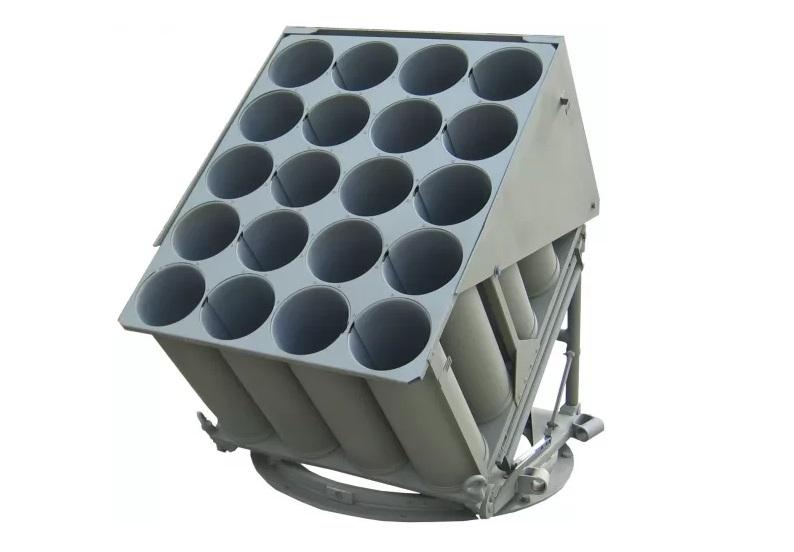In a significant move on June 14, the Polish Armament Agency finalized two contracts with a consortium of defense industry companies. These agreements involve the procurement of Baobab-K automated mine-laying systems and anti-tank mines, marking a significant step forward for Poland’s defense capabilities. Under the first contract, the consortium will supply 24 automated mine-laying vehicles, accompanied by a comprehensive logistics and training package. The total worth of this order is estimated at around PLN 510 million gross (approximately EUR 115 million). Deliveries of the vehicles are scheduled to take place between 2026 and 2028, enabling Poland to bolster its mine-laying capabilities.
The second agreement focuses on the acquisition of more than 10,000 ISM mine cassettes, which will be equipped with MN-123 erratic mines. Additionally, several hundred mine cassettes containing training erratic mines MN-123/C, as well as over 6,000 anti-tank mines for manual deployment (MR-123), will also be provided. This contract amounts to a value of approximately PLN 566 million gross (approximately EUR 126 million). Deliveries for this agreement are slated to occur between 2023 and 2026. These contracts mark a significant investment in enhancing Poland’s defense infrastructure and capabilities. By acquiring advanced automated mine-laying systems and anti-tank mines, Poland aims to strengthen its military readiness and bolster national security. These procurements will ensure that the country remains prepared to address potential threats effectively.

Huta Stalowa Wola (HSW), a Polish defense company, along with its partners, is currently developing an innovative automated mine-laying system known as Baobab-K. This advanced system aims to create scattered anti-tank barrier minefields with varying sizes, densities, and self-destruction times. The development of Baobab-K is being carried out by a consortium led by HSW, which includes Jelcz, BELMA, WB Group, and the Military Institute of Engineering. Together, they are working towards bringing this cutting-edge system to fruition. Baobab-K is designed to be mounted on trucks and can be controlled remotely from a ground control station. It utilizes the reliable and highly mobile Jelcz 8×8 truck chassis, known for its impressive payload capacity and maneuverability.
One of the key features of Baobab-K is its fully automated process, enabling swift transitions between transport and combat modes. The vehicle can be equipped with six launchers, also known as mine throwers, which have the capability to deploy programmable anti-tank mines manufactured by BELMA, namely the MN-123.1 and MN-123.2. Loading and unloading of the mine throwers onto the ammunition vehicle are facilitated by the use of a crane. The Baobab-K automated mine-laying system showcases HSW’s dedication to developing advanced defense solutions. Once deployed, this system will offer enhanced capabilities for creating effective anti-tank barrier minefields, contributing to the overall defense capabilities of the Polish armed forces and its allies.

The mine-laying capabilities of a single cassette have been enhanced, as it can now accommodate up to five anti-tank mines. Furthermore, a launcher has the capacity to hold 20 cassettes, allowing a vehicle to transport a maximum of 600 mines. Additionally, the vehicle can be equipped with eight 81mm smoke grenade launchers for added functionality. This mine-laying system has been specifically designed to be operated by tactical-level engineering sub-units within the armed forces. Its primary purpose is to effectively neutralize armored vehicles and other similar threats. The system’s control mechanism offers the flexibility of both automatic and manual modes for mine-laying control and supervision. In automatic mode, an onboard computer takes charge of various calculations such as vehicle speed and launcher settings. It also dynamically adjusts the frequency of mine launching while the vehicle is in motion.
Huta Stalowa Wola (HSW SA) is a defense contractor and steel mill located in Stalowa Wola, Poland. It is a major producer of military equipment.In the 1960s and 1970s the company started production of heavy construction machinery, and in the 1980s, it was one of the major centers of oppositional activities. In 1991 Huta Stalowa Wola became a joint stock company. It is still the major employer in the town, and a major producer of military equipment. HSW SA is part of Polska Grupa Zbrojeniowa SA. The Polska Grupa Zbrojeniowa (PGZ SA) is a holding company established by the Polish government to unite Polish, state owned defence industry companies. The headquarters of this group is in Radom.
















